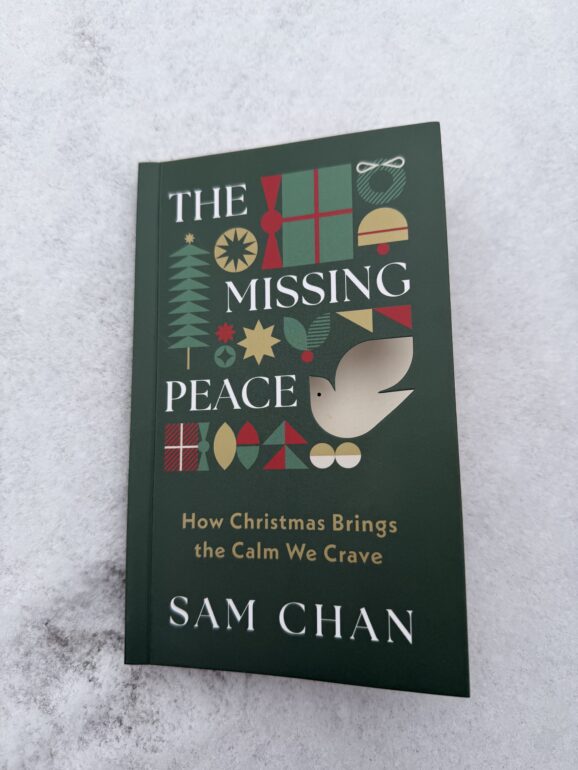If there’s no God, then when it really matters, there’s no rule book and no umpire to make the call on who’s right and who’s wrong.
If there’s no God and we’re merely a sophisticated species of animal, then we have to do things the same way animals do. We have to fight.
If there’s no God, then the biggest, loudest, stubbornest player wins. We see this on the world stage. We see it in the school playground. We see it in our offices and our homes. And so any peace we enjoy is always brittle and often broken.
Is there any way we can say that there is such a thing as right and wrong, rather than just “the strongest wins”?
It’s in light of this that the Christmas story is good news, because what Christmas says is There is a God. There is a reference point. And therefore, there can be peace. – Sam Chan
If you’re missing peace in your life (or know someone who is), I want to invite you to read through this short 63 page book by my friend, Sam Chan.
The Missing Peace: How Christmas Brings the Calm We Crave




